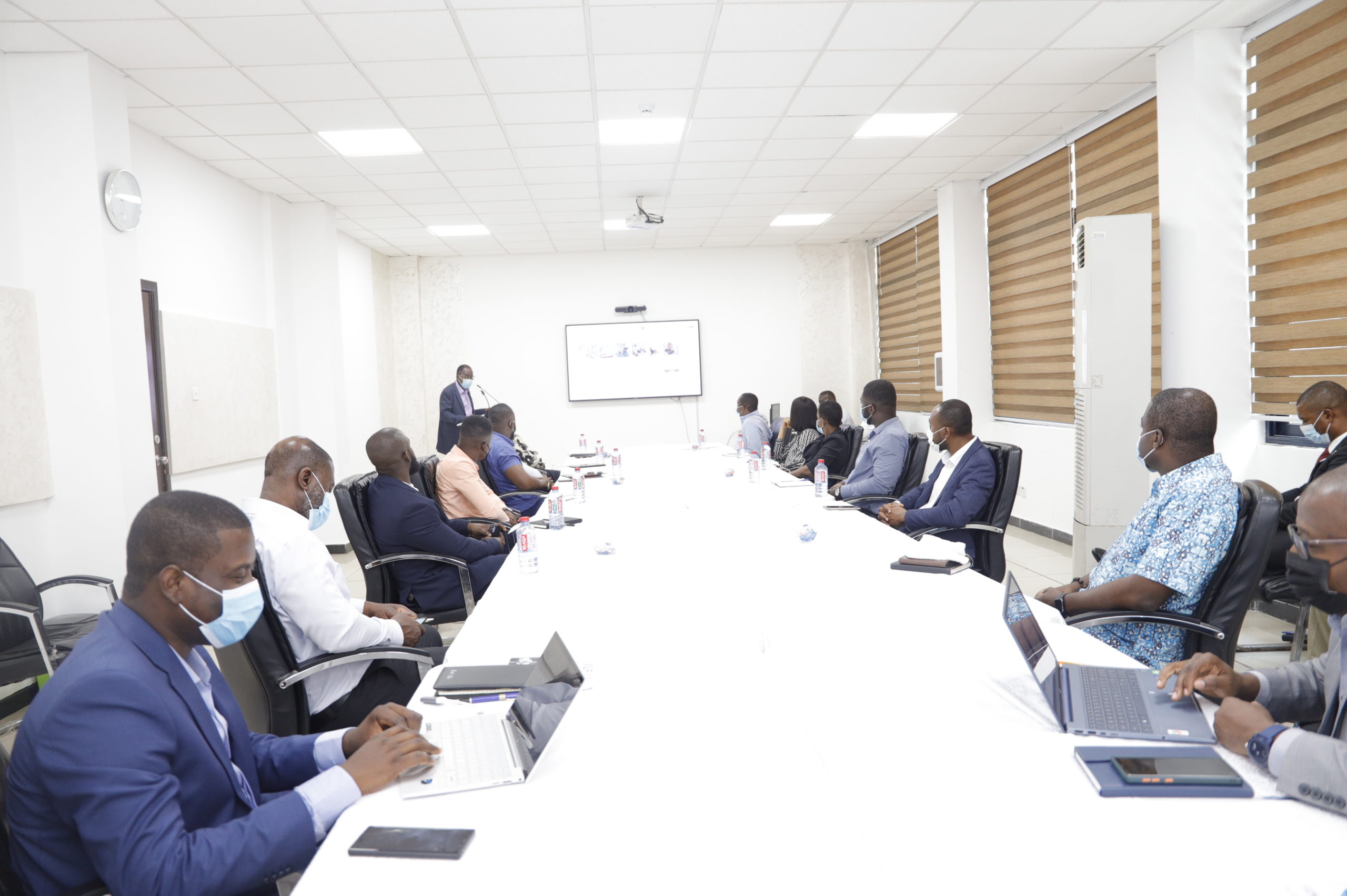Earlier this week, the Petroleum Commission engaged GOIL Offshore Ghana Limited in a capacity building programme. These efforts were undertaken following a request by the latter to develop its local capacities in the upstream petroleum industry value chain.
The meeting which took place at the Commission’s premises sought to equip the GOIL delegation on the processes for awarding Exploration & Production (E&P) Rights and other key indicators to be taken under consideration before venturing into the upstream petroleum industry.
Speaking at the meeting, Manager, Geoscience of Petroleum Commission, Dr. Isaac Oppong, highlighted the key mandate of the Commission and explained the main processes in the upstream value chain. Taking the delegation through the process for E&P Rights, Dr Oppong indicated that the process was initially done through an open-door system. However, following the challenges of transparency, competitiveness, among others, the Petroleum (Exploration and Production) Act 2016, Act 919 was passed to provide a new mode of application.
“You first express your interest and confirm that by writing to the Ministry of Energy after which your letter will be brought here to the Commission to vet the application and proceed with the necessary processes if all conditions are met,-he explained.
He further added that after several other rigorous technical processes, there will be bidding for blocks. After which the Government’s Negotiation Committee made up of representatives from the Ministry, Commission, the Ghana Revenue Authority, Attorney General’s Department and Ghana National Petroleum Corporation will also meet with the company for further contractual arrangements and assess their HSE competence, technical and financial capacities which are needed to efficiently operate in the upstream petroleum industry.
Principal Data Management Officer at the Commission, Mr. Kwadwo Kyeremateng, also took the delegation through the management of petroleum data.
He explained that as mandated by law, the Commission reserves the right of storage of the upstream petroleum data and allows viewing of the upstream data by parties who have expressed interest in entering the industry. He added that the companies who show interest are given an extent of data viewing based on their areas of interest. He further explained that IOCs after relinquishing the wells, lose their rights of access to the data of the wells they operate. They are also not expected to leak out to third parties and this is guaranteed by the contracts signed with the IOCs.
Managers Contracts Administration, Engineering, Local Content, Localisation, Costs Audit, and Project Evaluation also took turns to share knowledge regarding their respective fields with the delegation.
Source: Petroleum Commission

